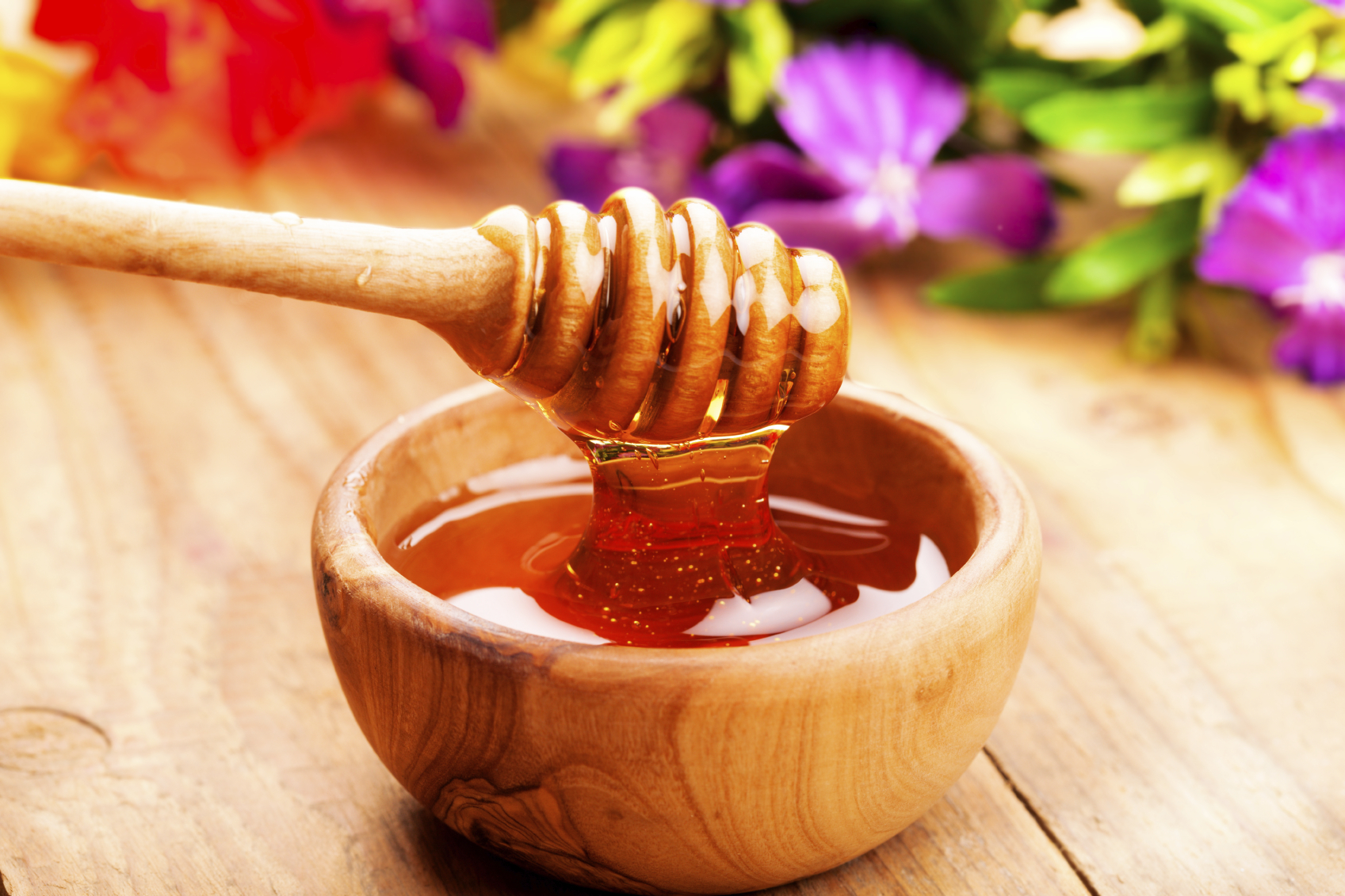
Honey is an old medicinal product which has been used worldwide for over 2500 years. Certain traditional systems of medicine such as Ayurveda use it and modern-day scientists are researching its beneficial properties for a variety of applications, the best known being for the healing of wounds. Honey’s popularity stems from its versatility and the number of ways it can be consumed. It can be eaten with bread, used as a sweetener, or be mixed with other ingredients and herbs for its medicinal properties. We list some of the many other benefits of honey below.
- Honey has more calories than sugar but when it is dissolved in warm water, lemon juice, or cinnamon, it helps with weight loss by digesting body fat.
- It boosts energy. It is easily digestible and the carbohydrates it contains are converted into glucose by the body.
- Honey helps in athletic performance. It maintains blood sugar levels, assists in muscle recovery and glycogen restoration after workouts, and regulates insulin levels and energy expenditure.
- It is a rich source of Vitamin C, calcium, and iron.
- It is often used as a natural antiseptic because of its anti-bacterial and anti-fungal properties. We alluded to its use in healing wounds in the beginning of this article and it can also used to treat burns. It does this by cleaning the affected area and by stimulating tissue repair. Honey also works as an anti-inflammatory agent and reduces swelling, scarring, and pain. Moreover, it is a natural home remedy for many conditions including yeast infection, athlete’s foot, and arthritic pain.
- Honey is an antioxidant and contains nutraceuticals which are excellent for removing free radicals from the body. In the process it bolsters the immune system and also helps to prevent cognitive decline and dementia.
- Milk and honey mixed together make a wonderful skin tonic.
- Honey helps promote optimal sleep and helps the body to rejuvenate itself while in a state of rest.
- The unpleasant effects of hangovers resulting from having drunk too much alcohol can be mitigated to some extent by ingesting a blended cocktail of honey mixed with orange juice and natural yogurt. It is light on the stomach and the natural sugars like fructose contained in honey help the liver to recover faster because the oxidation of alcohol is speeded up.
- Sore throats caused by colds and other infections can be soothed by honey due to its antimicrobial properties, killing certain bacteria in the process that may have caused the infection. Professional singers often take a dose of honey before a performance.
Honey’s beneficial properties are taken seriously by the scientific community. Christie Hospital in Manchester, UK are planning to use honey to assist in the recovery process for cancer patients after surgery. Honey is known to have anti-tumour and carcinogen-preventative properties. The Waikato Honey Research Unit is a source of information of the worldwide research being carried out on the medicinal benefits of honey. The quality of honey is an important determinant as far as its medicinal efficacy is concerned. Some of the factors that have a bearing on the quality of the honey include the types of flowers used in its manufacturing, how it is stored and at what temperatures, the blending process, water content, colour, filtration, and others.
Organic honey is always better to eat than non-organic. Extensive pesticide usage can affect bees which in turn affects the quality of the honey they produce. Non-organic honey production also incorporates the use of antibiotics which organic honey does not. The manufacturing process of organic honey follows much more rigorous quality guidelines than those for non-organic honey. In fact, antibiotics can often be added in excessive quantities for the latter because the guidelines are less stringent. Bees are given veterinary antibiotics like chloramphenicol, sulfonamides, and streptomycin which are dangerous for human consumption because they can cause cancer and aplastic anemia.







